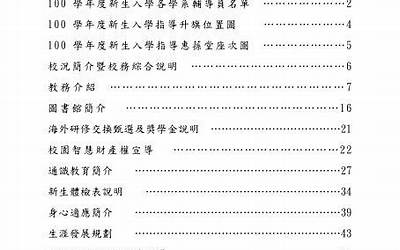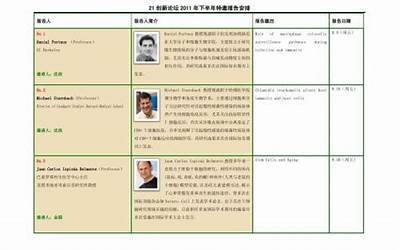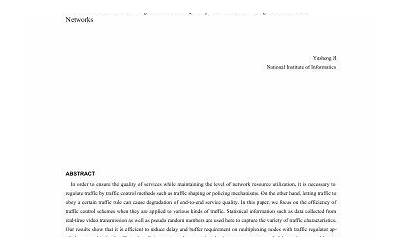大家好!今天让小编来大家介绍下关于孔子的经典名言100句(孔子的经典名言100句)的问题,以下是小编对此问题的归纳整理,让我们一起来看看吧。
文章目录列表:

孔子语录的全文是什么?总共有几句?
孔子语录 做人做事 1.不学礼,无以立。 2.己所不欲,匆施于人。 3.己欲立而立人,己欲达而达人。 4.躬自厚而薄责于人,则远怨矣。 5.见贤思齐焉,见不贤而内自省也。 6.三人行,必有我师焉,择其善者而从之,择其不善者而改之。 7.吾日三省吾身:为人谋而不忠乎?与朋友交而下信乎?传不习乎? 8.居处恭,执事敬,与人忠。 9.君子敬而无失,与人恭而有礼,四海之内皆兄弟也。 10.言忠信,行笃敬,虽蛮貊之邦,行矣。言不忠信,行不笃敬,虽州里,行乎哉? 11.行己有耻,使于四方,不辱君命,可谓士矣。 12.孔子曰:“能行五者于天下为仁矣。”请问之。曰:“恭、宽、信、敏、惠。恭则不侮,宽则得众,信则人任焉,敏则有功,惠则足以使人”。 13.君子义以为质,礼以行之,孙以出之,信以成之。君子哉! 14.过而不改,是谓过矣! 15.过,则匆惮改。 16.不迁怒,不二过。 17.三军可夺帅也,匹夫不可夺志也! 18.人无远虑,必有近忧。 19.无欲速,无见小利。欲速,则不达;见小利,则大事不成。 20.士不可不弘毅,任重而道远。仁以为己任,不亦重乎?死而后己,不亦远乎? 21.执德不弘,信道不笃,焉能为有,焉能为亡。 22.与朋友交,言而有信。 23.以文会友,以友辅仁。 24.益者三友,损者三友。友直,友谅,友多闻,益矣。友便辟,友善柔,友便佞,损矣。 25.君子欲讷于言而敏于行。 26.君子食无求饱,居无求安,敏于事而慎于言,就有道而正焉,可谓好学也已。 27.巧言乱德。 28.巧言令色,鲜矣仁。 29.刚、毅、木、讷近仁。 30.有德者必育言,有言者不必育德。 31.听其言而观其行。 32.君于不以言举人,不以人废言。 33.古者言之不出,耻躬不逮也。 34.君子名之必可言也,言之必可行也,君子于其言,无所苟而已矣。 35.可与言而不与之言,失人;不可与言而与之言,失言。知者不失人,亦不失言。 36.言未及之而言谓之躁,言及之而不言谓之隐,未见颜色而言谓之瞽。 37.好仁不好学,其蔽也愚;好知不好学,其蔽也荡;好信不好学,其蔽也贼;好直不好学,其蔽也绞;好勇不好学,其蔽也乱;好刚不好学,其蔽也狂。 38.恭而无礼则劳,慎而无礼则葸,勇而无礼则乱,直而无礼则绞。 39.事君,敬其事而后其食。 40.礼之用,和为贵。 41.放于利而行,多怨。 人生态度 1.士志于道,而耻恶衣恶食者,未足与议也 。 2.发愤忘食,乐以忘忧、不知老之将至…。 3.饭疏食、饮水,曲肱而枕之,乐亦在其中矣。不义而富且贵,于我如浮云。 4.贤哉,回也!一箪食,一瓢饮,在陋巷,人不堪其忧。回也不改其乐。 5.富与贵,是人之所欲也;不以其道,得之不处也。贫与贱,是人之所恶也。 6.不以其道,得之不去也。 7.富而可求也,虽执鞭之士,吾亦为之。如不可求,从吾所好。 8.有朋自远方来,不亦乐乎? 9.见利思义,见危授命。 10.修己以敬以修己以安人…修己以安百姓。 11.可以托六尺之孤,可以寄百里之命,临大节而不可夺也。 12.志士仁人,无求生以害仁,有杀身以成仁。 13.君于疾没世而名不称焉。 14.夫达也者,质直而好义。察言而观色,虑以下人。 15.君子泰而不骄,小人骄而不泰。 16.君子易事而难说(悦),说(悦)之不以道,不说(悦)也。 17.君子之仕也,行其义也。 18.子谓于产。有君子之道四焉:其行己也恭,其事上也敬,其养民也惠,其使民也义。 19.君子和而不同,小人同而不和。 20.君子矜而不争,群而不党。 21.君子周而不比,小人比而不周。 22.君子坦荡荡,小人常戚戚。 23.仁者不忧,知者不惑,勇者不惧。 24.放于利而行,多怨。 25.求仁而得仁,又何怨。 26.质胜文则野,文胜质则史。文质彬彬,然后君子。 27.君子谋道不谋食,君子忧道不忧贫。 28.法语之言,能无从乎?改之为贵。提手与之言,能无说 乎?绎之为贵。说而不绎,从而不改,吾末如之何也已矣。 29.见善无不及,见不善如探汤。 30.君子尊贤而容众,嘉善而矜不能。 31.士而怀居,不足为士矣! 政治理念 1.政者正也,子帅以正,孰敢不正? 2.举直错诸枉,则民服;举枉错诸直,则民不服。 3.子为政焉用杀?子欲善而民善矣。君子之德风,小人之德草,草上之风,必偃。 4.裔不谋夏,夷不乱华,俘不干盟,兵不逼好。 5.道之以政,齐之以刑,民免而无耻;道之以德,齐之以礼,有耻且格。 6.上好礼,则民莫敢不敬;上好义,则民莫敢不服:上好信,则民莫敢不用情。 7.慎终,追远,民德归厚矣。 8.不教而杀谓之虐;不戒视成谓之暴;慢令致期谓之贼;犹之与人也,出纳之吝谓之有司。 9.为政以德,譬如北辰,居其所而众星共之。 10.苟正其身,于从政乎何有?不能正其身,如正人何? 11.道千乘之国,敬事而信,节用而爱人,使民以时。 12.出门如见大宾,使民如承大祭。 13.工欲善其事,必先利其器。居是邦,事其大夫之贤者,友其士之仁者。 14.百姓足,君孰与不足?百姓不足,君孰与足? 15.君子之行也,度于礼。施,取其厚;事,举其中;敛,从其薄。 16.君于惠而不费,劳而不怨,欲而不贪,泰而不骄,威而不猛。…因民之利而利之,斯不亦惠而不费乎?择可劳而劳之,又谁怨?欲仁而得仁,又焉贪?君子无众寡、无小大、无敢慢,斯不亦泰而不骄乎?君子正其衣冠,尊其瞻视,俨然人望而畏之,斯不亦威而不猛乎? 17.文武之政,布在方策。其人存,则其政举;其人亡,则其政息。....故为政在人。 18.君使臣以礼.臣事君以忠。 19.子路问事君。子日: " 勿欺也,而犯之。” 20.其身正,不令而行;其身不正,虽令不从。 21.以不教民战,是谓弃之。 22.知及之,仁不能守之,虽得之,必失之。知及之,仁能守之,不庄以莅之,则民不敬。知及之,仁能守之,庄以莅之,动之不以礼,未善也。 23.使民敬、忠以劝,如之何?子曰 :“临之以庄,则敬。孝慈,则忠。举善而教不能.则劝。” 24.先有司,赦小过、举贤才。 25.居上不宽,为礼不敬,临丧不哀,吾何以观之哉!孔子名言100句和翻译
不知道那么多,先提供几句吧~请批评指正。1. 学而不思则罔,思而不学则殆。
Learning without thought is labour lost; thought without learning is perilous.
2. 三人行,必有我师焉。择其善者而从之,其不善者而改之。
If i'm together with some people, then there must be my teachers. I will study their merits and avoid their shortcomings.
3. 知之为知之,不知为不知,是知也。
It's wise to hold what you know and admit what you don't know.
4. 有教无类。
Make no social distinctions in teaching.
5. 学而时习之,不亦说乎?
Is it not pleasant to learn with a constant perseverance and application?
6.温故而知新,可以为师矣。
Learning in review, a master you will be.
7.知之者不如好之者,好之者不如乐之者。
Knowing it is not as good as liking it, and liking it is not as good as enjoying it.
8.性相近也,习相远也。
By nature, men are nearly alike; by practice, they get to be wide apart.
9.过而不改,是谓过矣。
Not to mend the fault one has made is to err indeed.
10.己所不欲,勿施于人。
What you do not want done to yourself, do not do to others.
11.言必信,行必果。
Keep what you say and carry out what you do.
12.君子以文会友,以友辅仁。
The superior man on grounds of culture meets with his friends, and by their friendship helps his virtue.
13.三军可夺师也,匹夫不可夺志也。
The commander of the forces of a large State may be carried off, but the will of even a common man cannot be taken from him.
14.后生可畏,焉知来者之不如今也?
A youth is to be regarded with respect. How do you know that his future will not be equal to our present?
15.有朋自远方来,不亦乐乎?
Is it not delightful to have friends coming from distant quarters?
16.人不知而不愠,不亦君子乎?
Is he not a man of complete virtue, who feels no discomposure though men may take no note of him?
17.父在,观其志。父没,观其行。三年无改于父之道,可谓孝矣。
While a man's father is alive, look at the bent of his will; when his father is dead, look at his conduct. If for three years he does not alter from the way of his father, he may be called filial.
18.不患人之不己知,患不知人也。
I will not be afflicted at men's not knowing me; I will be afflicted that I do not know men.
19.诗三百,一言以蔽之,曰:思无邪。
In the Book of Poetry are three hundred pieces, but the design of them all may be embraced in one sentence-- "Having no depraved thoughts."
20.关睢乐而不淫,哀而不伤。
The Kwan Tsu is expressive of enjoyment without being licentious, and of grief without being hurtfully excessive.
21.父母在,不远游,游必有方。
While his parents are alive, the son may not go abroad to a distance. If he does go abroad, he must have a fixed place to which he goes.
22.人一能之,己百之。
人十能之,己千之。
If others succeed by making one ounce of effort , I will make a hundred times as much effort ; if others succeed by making ten times as much effort , I will make ten hundred times as much effort .
23.巧言令色,鲜矣仁!
A man who speaks with honeyed words and pretends to be kind can not be benevolent .
24.人莫不饮食也,鲜能知味也。
Everyone drinks and eats , but few know the real taste of what has been drunk or eaten .
25.贫而无怨难,福而无骄易。
It is difficult for one to make no complaints when poor; but it is easy for one to show no arrogance when rich .
26.君子求诸己,小人求诸人。
A gentleman sets strict demands on himself while a petty man sets strict demands on others.
27.事父母几谏,见志不从,又敬不违,劳而不怨
In serving one’s parents , one should dissuade them from doing wrong in the gentlest way. When the advice is ignored , one should remain reverent and obedient. One should not complain even when one is laden with anxiety.
28.父母之年,不可不知也。一则以喜,一则以惧.
One must always keep in mind one’s parents’ birthday. On the one hand, one is glad to offer birthday congratulations; on the other, one is worried to see they grow one year older.
29.无欲速,无见小利。欲速则不达,见小利则大事不成。
Do not make haste; do not covet small gains. If you make haste, you can not reach your goal; if you covet small gains, your efforts will not culminate in great achievements.
30.忠告而善道之,不可则止,勿自辱焉
Advise earnestly and guide properly, stop doing so if they don’t follow. Do not get vexed.
31.君子不以言举人,不以人废言。
A gentleman does not promote a man whose words are pleasant to his ear, neither dose be disdain his correct words for he is an unpleasant man.
32.唯女子与小人,为难养也。近之则不孙,远之则怨。
Of all people, girls and servants are the most difficult to behave to. If you are familiar with them, they lose their humility. If you maintain a reserve towards them, they are discontented.
33.德不孤,必有邻。
Virtue is not left to stand alone. He who practices it will have neighbors.
34.吾十有五而志于学,三十而立,四十而不惑,五十而知天命,六十而耳顺,七十而从心所欲,不逾矩。
At fifteen I set my heart upon learning. At thirty, I planted my feet firm upon the ground. At forty, I no longer suffered from perplexities . At fifty, I knew what the biddings of Heaven were. At sixty, I heard them with docile ear. At seventy, I could follow the dictates of my own heart; for what I desired no longer overstepped the boundaries of right.
35.哉回也!一箪食,一瓢饮,在陋巷,人不堪其忧,回也不改其乐。贤哉回也!
Incomparable indeed was Hui! A handful of rice to eat, a gourdful of water to drink, living in a mean street. Others would have found it unendurably depressing, but to Hui's cheerfulness it made no difference at all. Incomparable indeed was Hui.
36.知者乐水,仁者乐山。知者动,仁者静。知者乐,仁者寿。
The wise find pleasure in water; the virtuous find pleasure in hills. The wise are active; the virtuous are tranquil. The wise are joyful; the virtuous are long-lived.
37.逝者如斯夫,不舍昼夜。
It passes on just like this, not ceasing day or night!
38.食不厌精,脍不厌细。
He did not dislike to have his rice finely cleaned, nor to have his minced meat cut quite small.
39.非礼勿视,非礼勿听,非礼勿言,非礼勿动。
Look not at what is contrary to propriety; listen not to what is contrary to propriety; speak not what is contrary to propriety; make no movement which is contrary to propriety.
40.人无远虑,必有近忧。
If a man take no thought about what is distant, he will find sorrow near at hand.
41.君子有三戒。少之时,血气未定,戒之在色。及其壮也,血气方刚,戒之在斗。及其老也,血气既衰,戒之在得。
There are three things which the superior man guards against. In youth, when the physical powers are not yet settled, he guards against lust. When he is strong and the physical powers are full of vigor, he guards against quarrelsomeness (n. 喜吵架). When he is old, and the animal powers are decayed, he guards against covetousness.
以上就是小编对于孔子的经典名言100句(孔子的经典名言100句)问题和相关问题的解答了,孔子的经典名言100句(孔子的经典名言100句)的问题希望对你有用!







